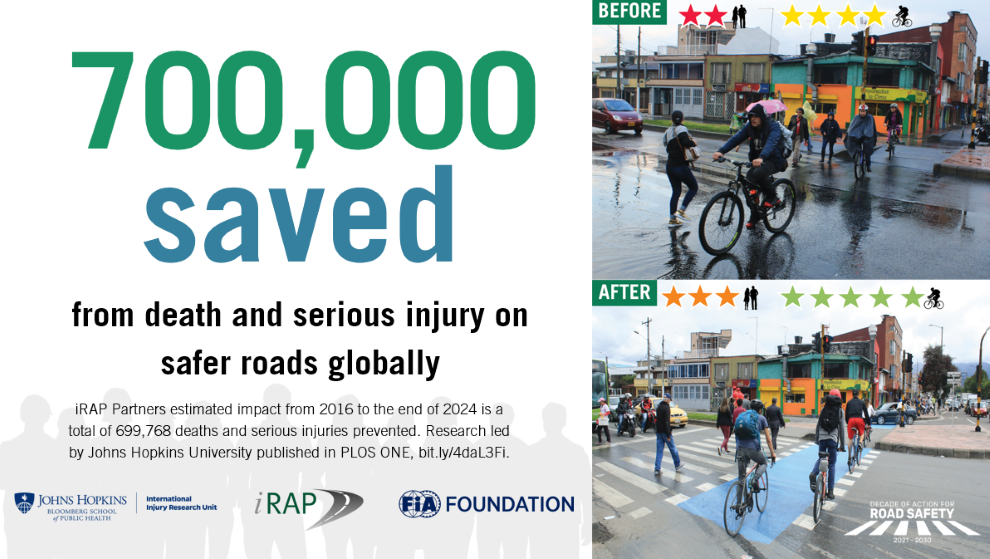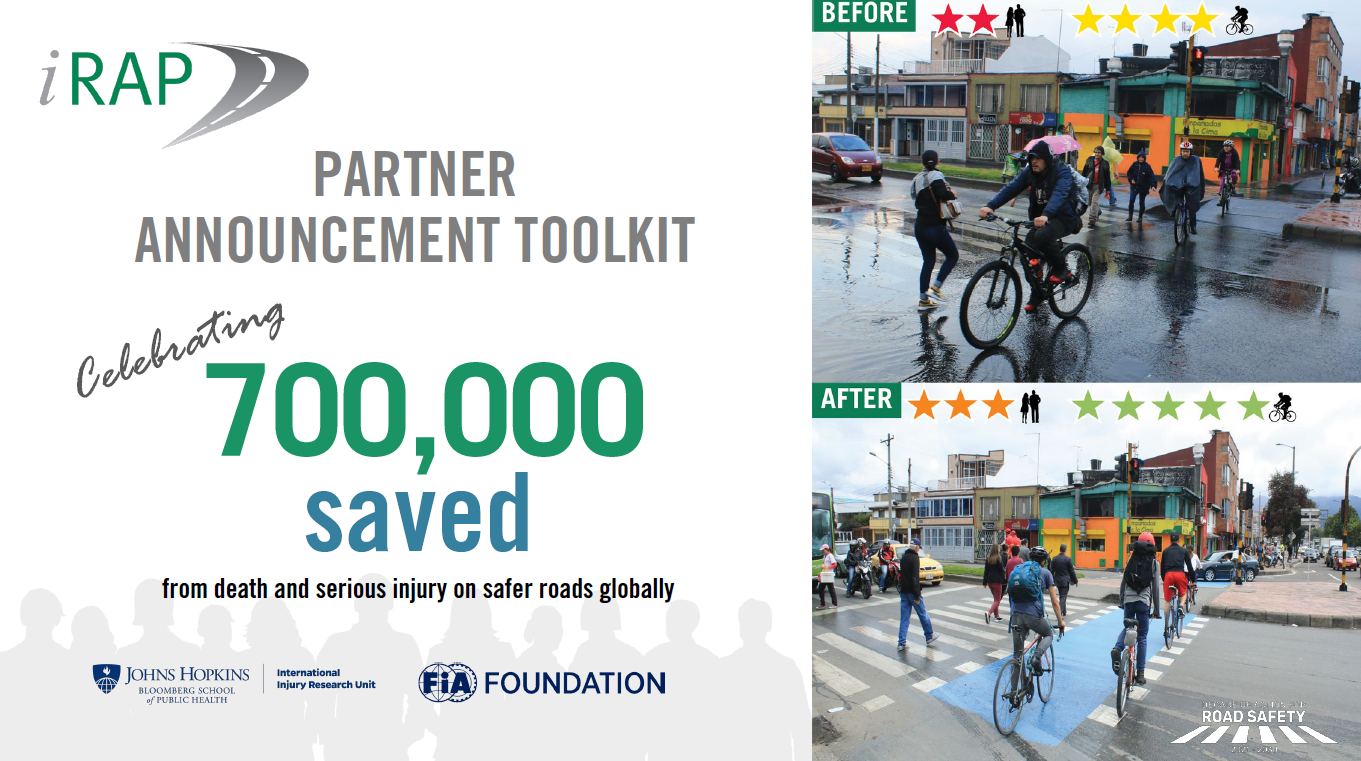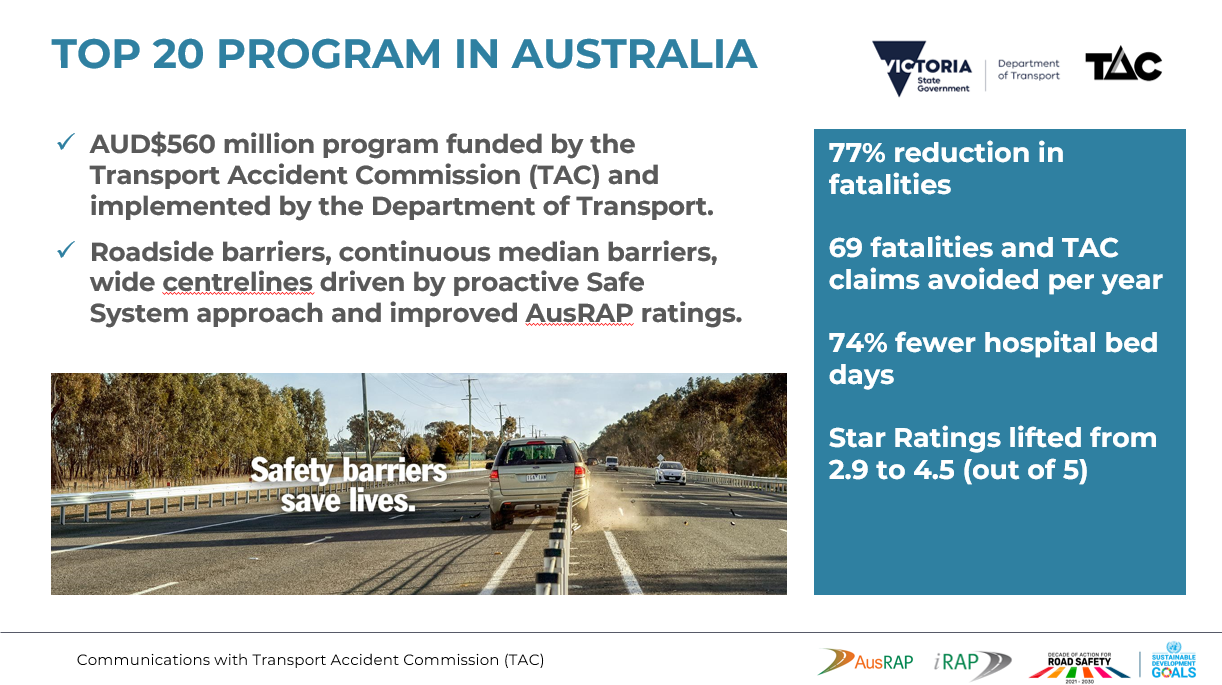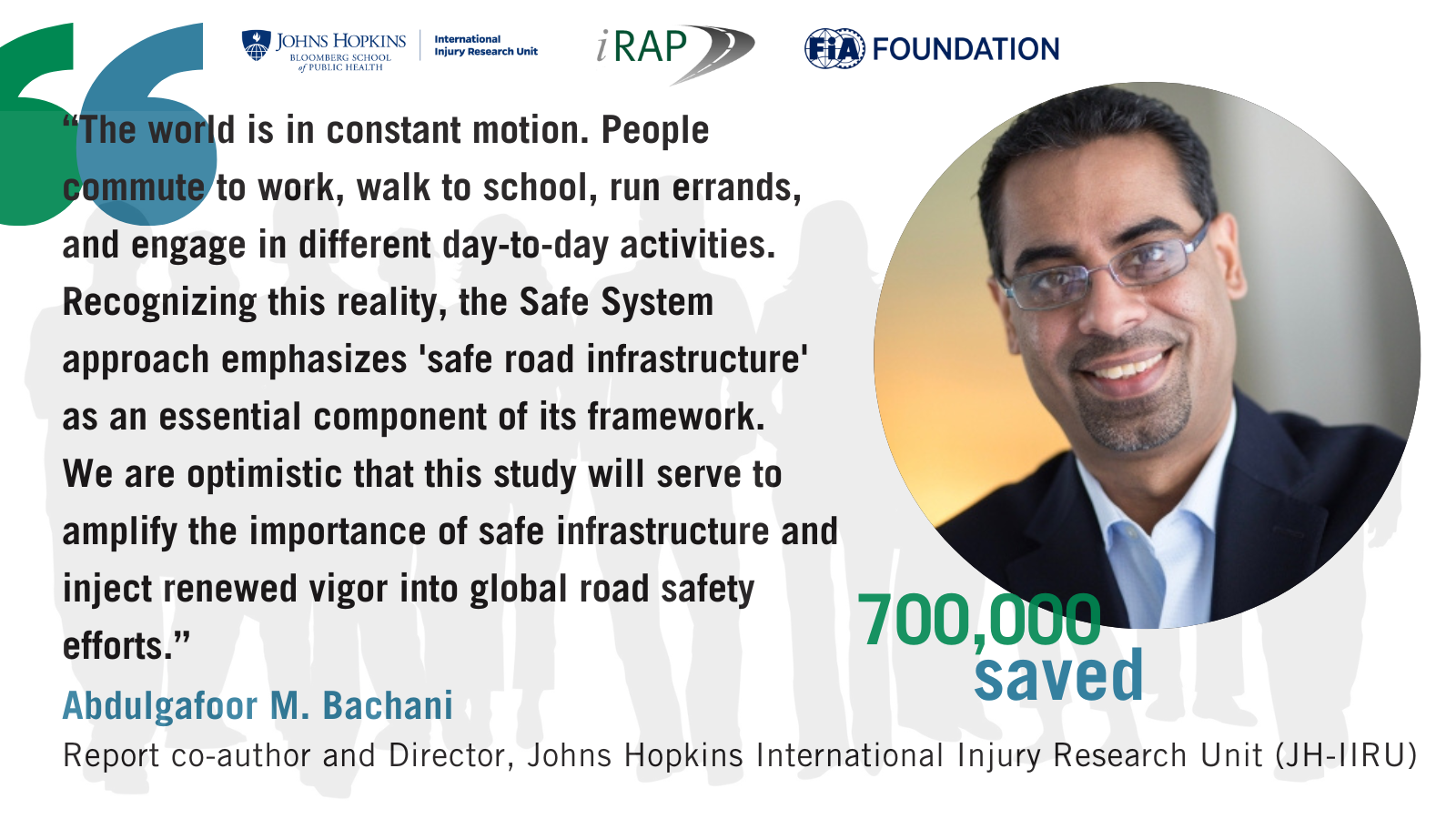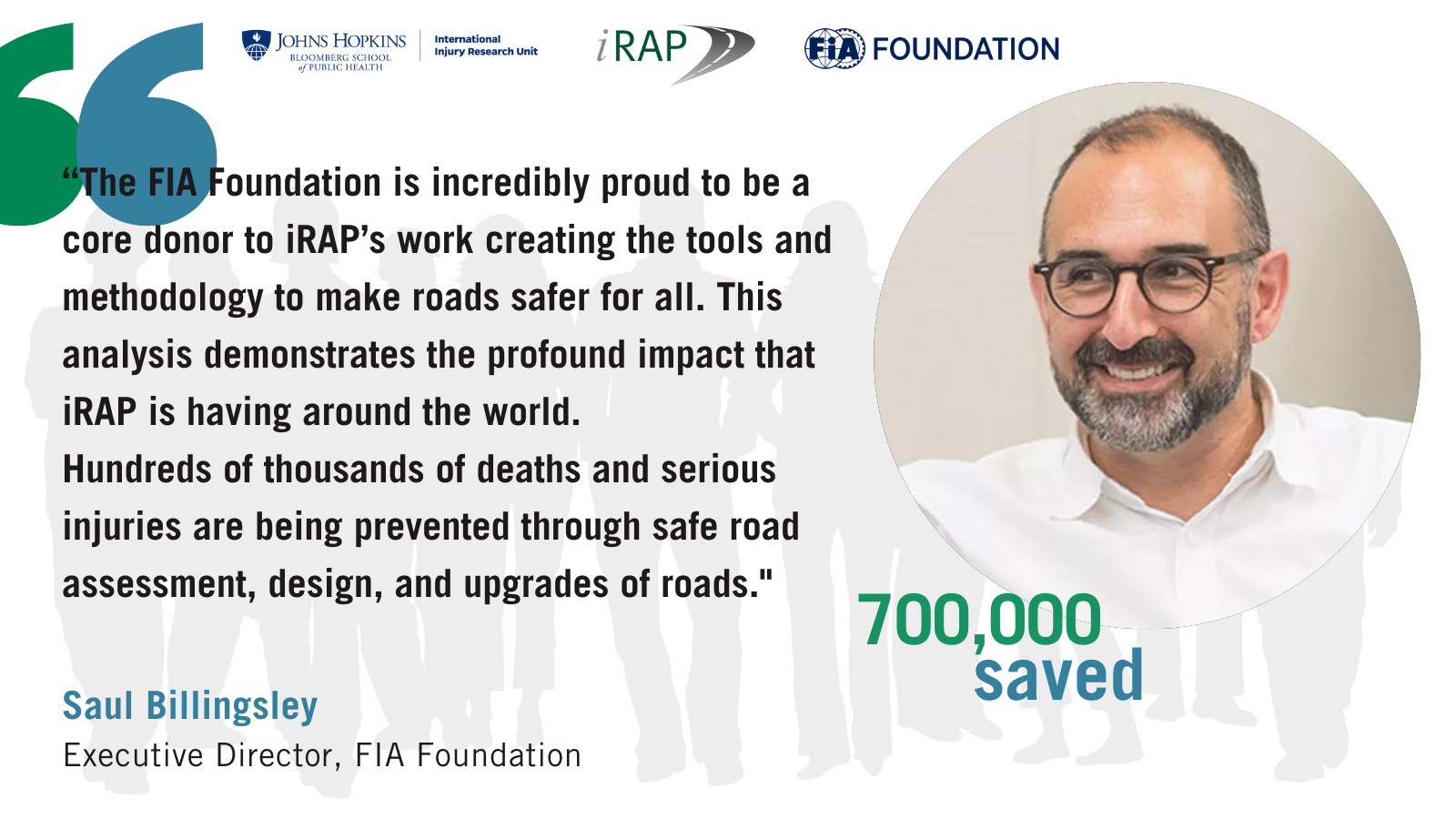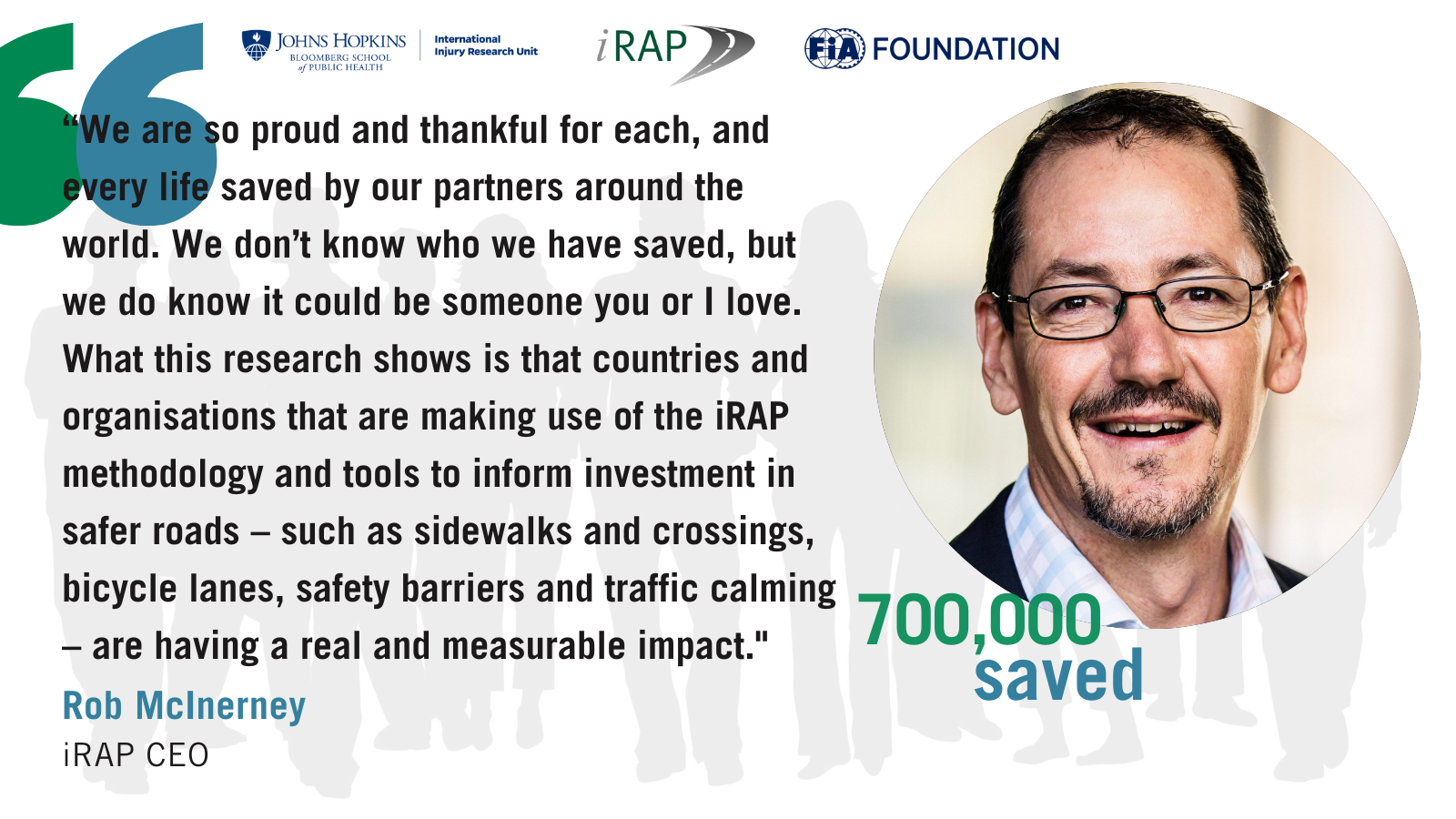The paper ‘Statistical estimation of fatal and serious injuries saved by iRAP protocols in 74 countries’ estimates the likely impact of road improvements in 1,039 infrastructure projects where the iRAP methodology and tools have been used.
Key findings of the report, with modelling year-by-year, show the application of the iRAP model will have prevented a cumulative and estimated 699,768 deaths and serious injuries between January 2016 and the end of 2024. Further, the paper projects that by 2044, the existing road treatments will prevent almost 3.2 million fatalities and serious injuries, given the average effective lifespan of 20 years.
The study is the first to measure the impact of road projects financed by governments, development banks and private-sector road operators around the world using the iRAP methodology and tools.
The iRAP Star Rating Methodology provides an objective measure of road safety levels ‘built in’ to the road for vehicle occupants, motorcyclists, bicyclists, and pedestrians. It presents an evidence-based measure of the likelihood of a crash occurring and its severity. A 1-star rated road is the least safe while a 5-star road is the safest.
Examples of projects where the iRAP methodology has been used include:
In Karnataka, India, deaths reduced by 54% and injuries by 42% on a 62km section of the Belagavi – Yaragatti Highway; in Victoria, Australia, deaths fell by 77% and hospital bed days reduced by 74% on 1,730km of key highways; zero fatalities and an 89% fall in injuries on a section of Highway 4028 in Thailand; in Shaanxi, China, road deaths fell 33% and injuries more than halved (53%) on 850km of roads; in Albania, road deaths fell 23% following treatment on 1,335km of the nation’s busiest primary and secondary roads; in England, deaths fell by 54% on more than 7,000km of strategic network roads; and in Colombia, speed limit reductions informed by iRAP assessments resulted in a 22% reduction in fatalities.
Rob McInerney, iRAP CEO, said: “We are so proud and thankful for each, and every life saved by our partners around the world. We don’t know who we have saved, but we do know it could be someone you or I love. What this research shows is that countries and organisations that are making use of the iRAP methodology and tools to inform investment in safer roads – such as sidewalks and crossings, bicycle lanes, safety barriers and traffic calming – are having a real and measurable impact.”
iRAP partnerships now extend across more than 125 countries, 1.8 million kilometres of Star Ratings of roads and designs, and 1.8 million kilometres of Risk Mapping, influencing the safety of over 100 billion USD of road investment.
Globally, road deaths and injuries have declined for the first time on record, according to the latest data from the World Health Organization (WHO), which identified improving standards of roads as an important factor. The Global Plan for the Decade of Action for Road Safety 2021-2030 set targets for most journeys to be made on 3-star or better roads by 2030, and all new roads to be built to those standards.
Abdulgafoor M. Bachani, report co-author and Director, Johns Hopkins International Injury Research Unit (JH-IIRU), said: “The world is in constant motion. People commute to work, walk to school, run errands, and engage in different day-to-day activities. Recognizing this reality, the Safe System approach emphasizes ‘safe road infrastructure’ as an essential component of its framework. Consequently, prioritizing its integration into urban planning and development initiatives should become imperative in every city, country, and region. We are optimistic that this study will serve to amplify the importance of safe infrastructure and inject renewed vigor into global road safety efforts.”
FIA Foundation Executive Director, Saul Billingsley said, “The FIA Foundation is incredibly proud to be a core donor to iRAP’s work creating the tools and methodology to make roads safer for all. This analysis demonstrates the profound impact that iRAP is having around the world. Hundreds of thousands of deaths and serious injuries are being prevented through safe road assessment, design, and upgrades of roads. Now we need to see greater government investment and support from development banks to deliver safer road infrastructure over the next five years so that we can do everything we can to achieve the targets of the Road Safety Decade and the Sustainable Development Goals.”
Celebrate your contribution
Example case studies of success
(Click to enlarge)

